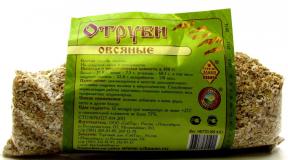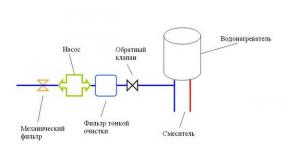Emperor Ivan Antonovich Braunschweigsky and their family. Here is such a generalssimus link to the Arkhangelsk province
Braunschweig family (Braunschweig-Mecklenburg-Romanovs) is the traditional name of the Anton of Anton Ulrich Braunschweig and Anna Leopoldovna. Belonged to the Wolfenbuttent branch of the Braunschweigine region of Veelphs, one of the most nonest and oldest in Europe.
- Father Prince Anton Ulrich Braunschweigsky (August 17, 1714-4 May 1774)
- Mother (at the birth of Elizabeth Katharina Kristina, Princess Mecklenburg-Schwerinskaya, December 7, 1718-8 March 1746)
- son - (August 12, 1740- July 5, 1764)
- daughter Ekaterina Antonovna Braunschweig (July 4, 1741 - March 29, 1807)
- daughter Elizabeth Antonovna (1743-1782)
- son Peter Antonovich (1745-1798),
- son Alexey Antonovich (February 24, 1746-1 October 11, 1787)
Holmogory
"The Prince of Anton Ulrich's family (he himself, two daughters and two sons) after the palace coup was setulated in the holkemogo - the village of North Dvina. The house stood on the shore of Dvina, who visited a little bit from one window, was acquainted with a high fence, closed the big courtyard with a pond, a garden, a bath and a carriage shed. In it, three decades stood without the movement of the carriage and crak, on which Anna Leopoldna and her family were once brought. In the view of a fresh man, the arrestants lived in close, dirty rooms forced by a dilapidated, wretched furniture, with smoking, sprinkling furnaces. When the Arkhangelsk Governor E. A. Hellovan arrived in 1765, the arrestants complained that they were completely collapsed by the bath and they did not wash. They needed in everything - in new clothes, underwear, buckles for shoes. Men lived in the same room, and women in the other, and "from rest in peace - one doors, chambers of vintage, small and close." Other premises in the house and building in the yard were filled with soldiers, a numerous servant of the Prince and his children.Living for years, decades together, under the same roof (Karaul did not change twelve years), these people quarreled, put up, fell in love, came to each other. The scandals followed one after another: Anton Ulrich quarreled with Bina (who, unlike the latter, was allowed to go to Kholmogory), then the soldier was caught on theft, and officers on Amrahs with the cormalites. The commandant and his subordinates were dried up and mercilessly robbed Anton Ulrich and his loved ones, and eternally a drunk cook prepared for them some incredible brew. Over the years, the guards forgot about discipline, went in a rash form. Gradually, along with Anton Ulrich, they became graffitable old men, each with their quirks.
The prince was quiet and meek. Over the years, it was frustrated, frozen, he began to overcome the disease. After the death of his wife (Anna Leopoldovna), he began to live with the maids, and it was believed that there were many of his illegal children in Khlemogors who became a servant of the Braunschweig family. Occasionally, the prince wrote Empress Elizabeth Letters: Thanks for the Saved Bottles of Hungarian or for some alms-gear. He especially dismissed without coffee, which he was needed daily. In his letters, Empress Elizavete Petrovna, and then Peter III, Catherine II, he showed emphasized, even the ultra-old loyalty, called himself a "cranked insignia", "insignificant dust and rush", "unfortunate worm", turned with "humiliated and unhappy lines" requests to royal person. I never asked for release, probably understanding that it was unrealistic. In the autumn of 1761, Anton Ulrich wrote a letter to Empress Elizabeth, asked her to "allow my children to learn to read and write to be able to be able to be in a state of kneeling to your imperial Majesty and, together with me, to the end of our lives, to pray for God for health and well-being Your Majesty and Your Family "(Empress in response, as always, silent)
After joining the throne, Anton Ulrich with the same lowest request also appealed to her. A new sovereign in August 1762 favored a letter to the letter of the Prince, expressed his participation, but did not promise to free it, he wrote to the diplomatically: "the deliverance of your united with some difficulties that can be understood by your prudence." She did not promise to help and in the training of princes and princesses.

Soon, Ekaterina II sent to the Holmogor General A. I. Bibikov, who was instructed to make a report on the situation in the area and give the characteristics of its inhabitants. Bibikov on behalf of the Empress suggested a prince to leave Russia to return it to Germany. But he refused a generous proposal of the sovereign.
Danish diplomat wrote that the prince, "accustomed to his imprisonment, the patient and fell by the Spirit refused to him the freedom." It is inaccurate - the prince did not want freedom for himself one, he wanted to leave with the children. But these conditions have not satisfied Catherine. In the instructions, Bibikov said it was said that "we intend to now free and release it in his fatherland with decency", and his children "for the same state resonov, which he for prudence to understand himself maybe, until we can free Our government will not be strengthened in the order in which they have received a new position to the well-being of our empire, "...
The Empress without enthusiasm took the report of Bibikov about his trip to Kholmogora, in which he with sympathy and sympathy wrote about princes and princesses, which, it turns out that for many years, the captivity did not lose human appearance, they were brought up, kindly and friendly. And although the Empress did not give permission to teach the princes and the princesses (it was not included in the statesman's plans and, moreover, it would mean that the teachers would have to send in Kholmogory), they were literate. In 1773, Princess Elizabeth itself personally wrote the Empress with a good style and handwriting, although with errors, three letters in which he begged the sovereign to give them "Although small exemption from Valley (so!), In addition to the father, they are born."
Anxiety rose: It turns out that the children of the prince, despite the lack of teachers, are literate. Panin, engaged in this case, immediately frightened - no matter how they start a correspondence with someone else. Arrests selected written accessories and conducted an investigation. It turned out that children to write and read the father for the old alphabet, who remained them from the deceased mother, as well as on its sacred books that children and read. It is noteworthy that the cases of the "Holmogorsk Commission", as well as Mirovich, were engaged in N. I. Panin and his assistant N. N. Teplov. As in the times of Elizabeth, the new authorities feared most of all, as if the princes and princesses did not kidnapose any adventurers like Zubareva, and warned the Archangelian governor about the possible appearance in those places of a foreign spy.
Apparently, the appearance of A. I. Bibikov, a man of humane and kind, as well as the unusually huge letters of a new state truck opened some vague hopes in the Braunschweig family, if not for freedom, then at least for facilitating the prison regime. Therefore, in September 1763, the prince dared to ask the Empress "a little more freedom": to allow children to attend the service in the church standing next to the prison. Catherine responded with refusal, as well as at his request to give children a "slightly more fresh air" (their most of the year was kept in the building)
So did not wait for Anton Ulrich a little freedom, no fresh air, nor that the cases of Empress Ekaterina would take a favorable position for him. For the sixty years he was called, he began to get blinddly and seemed to seek 34 years old, died on May 4, 1776. Dying, he asked him to give it to children "at least a small liberation." At night, the coffin with his body the guards secretly carried into the courtyard and buried there near the church, without a priest, without a rite, as a suicide, a tramp or drowned. Did you spend your children in the last path? Even this we do not know. Most likely, this was not allowed - they were forbidden to leave the house. But it is known that they are extremely difficult to move the death of the father and severely suffered from sorrow. In the next, 1777, the family was waiting for another hard loss - one for another two old women were died - the crumbles and nannies of the princes Anna Ivanov and Anna Ilyina. They have long become close member of the family, native people.
Princes and princesses after the death of the Father lived in imprisonment for another four years. By 1780, they have been adults for a long time: the 39th year was deaf Catherine, it was 37, Peter - 35 and Alexey - 34 years. All of them were weak, with obvious physical disabilities, a lot and for a long time they hurt. About the eldest son, Peter, the eyewitness wrote that "he is addition of a sick and a consumers, several curve and krivonog. Less son Alexey is the addition of dense and healthy ... has seizures. " Prince Ekaterina's daughter "The addition of a patient and almost crashota, moreover, somewhat deaf, says Nemo and unbelievable and obsessed with different painful seizures, a very quiet thing."
But, despite the life in captivity, they all grew by intelligent, kind and cute people. All visitors who came to the prisoners, following Bibikov, noted that they were encouraged to be good, that the prince's family is extremely friendly. As Hellovan wrote, "With the first arrival of the conversation, I could notice that the father of children loves his own, and the children are respectful to him and disagree between them." Like Bibikov, the headshan noted the special intendedness of the princess Elizabeth, who, whopping, said that "their only wines - the appearance of the light" and that she hopes that maybe the empress will be released and take a courtyard.

A. P. Melgunov
After the death of Anton Ulrich, the Governor of the Vologda princess A. P. Melgunov wrote about the princess, Catherine Antonovna's princess, that, despite her deafness, "it sees from the passage that it is a timid, evasion, polite and smashed, the quiet and cheerful; Seeing others in conversations of laughing, although it does not know the reasons, but makes them a company ... "
With the princess Elizabeth Melgunov spoke freely - she was smart and thorough. When the princess spoke with Melgunov that the family sent earlier by the Empress, "I wrote Melgunov, - Reimary to experience the mind and the arrangement of thoughts, honorable this case convenient to that asked it, what would their petition asked ? She answered me that the first of their request, when the father was healthy, and they were very young, to be given to them the liberty, but when this was not received and their father is blind, and they came out of her young years, then this Their desire changed to another, that is, they asked her finally, so that they were allowed to pass, but they did not receive an answer. "
The princesse said and recorded by Melgunov accurately reflects the situation of the 1760-1770s, when Catherine led himself, in general, as well as Elizabeth Petrovna: all requests are silence. All requests for freedom or at least about the facilitation of the regime were rejected by it. Catherine believed that all this "trouble make sure." Why were they needed? These people have ceased to exist for her. The sovereign never wrote them and did not even sympathize when they lost their father. As before, they were strictly guarded in the house, and during walks in the garden. But they began to feed them better, to robbed less and quite often from St. Petersburg new beautiful things brought. Elizabeth spoke Mel Grunov that with the beginning of the reign of Catherine they were resurrected - "before that time they needed everyone, even the shoes did not have."
It can be seen, the dream of freedom did not leave the princess Elizabeth, and she spoke to Melgunov again with bitterness about their unfulfilled desire to "live in large lights", to learn secular appeal. "But in the present situation," continued Elizabeth Antonovna, "there is no more desire to wish for us as soon as in order to live here in solitude, in holkemos. We are happy with everyone, we were born here, got used to the local place and soased, so for us, the big light is not only not needed, but also for us, for what we do not know how to do with people, but to learn later. "
"Only to the brothers," the Melgunov continued his report to the Empress, - then both of them, in my note, do not have, it seems that there is no natural acute in themselves, and their timidity is more visible, simplicity, shyness, silence and techniques, one small Guys are decent. However, a smaller one, Alexei, seems to be at the same time, dreamed and more careful than his brother Peter. But what lies to the greater, then from the actions it can be seen that it dwells in him the only simplicity and Mraku is too funny because it laughs and laughs when there is nothing funny at all ... they live between themselves friendly, and moreover ... kindly and human loving, and ... The brothers obey and listen to the Elisabeth. The exercise is that in the summer they work in the garden, go bears and ducks and feed them, and in winter they run away on wooden horses around the pond, in the garden of their existing, read church books and play cards and checkers, the girls are over Togo, sometimes sewing linen. "
Elizabeth had several requests, from which Alexei Petrovich Melgunova, a man of thin, humane and hearty, probably turned over in the shower: "Please proceed to us at the Eye of the Imperial Majesty, that one grace, so that 1) was allowed us to travel from home to the meadow For a walk, we detected that there are flowers there, which in our garden is not "; The second - to be allowed to be friends to the wives of the security officers - "And then we are bored!". The third request: "By the mercy de Honey of the Imperial Majesty send to us from St. Petersburg, capes, caps and currents, but we do not use them for the fact that neither we nor our girls know how to wear them and wear them. So do mercy ... Send such a person who could dress us in them. " Another princess asked the bath to be away from home and raised the salary to their ministers and allowed them to leave the house. At the end of this conversation with Melgunov Elizabeth said that if they fulfill these requests, "then we will be quite satisfied and we will not want to bother anything else and we don't want anything and be happy to stay in such a position forever."
Melgunov did not say to princes and princesses that his arrival to them is not just an inspection trip. The fact is that Catherine still decided to send Brunshweig surname abroad - to do what Elizabeth Petrovna did almost over forty years before. The Empress has failed correspondence with the Danish Queen Julia Margarita, the sister of Anton Ulrich and the aunt of Kholmogorsk prisoners, and suggested to settle them in Norway, then the province of Denmark. The queen replied that he could place them even in the Denmark itself. Melgunov was sent to Holmogora to compile a report on the basis of which the Empress could make a decision.

Catherine II
After reading the report of Melgunova, Ekaterina II gave a decree to prepare children Anna Leopoldovna and Anton Ulrich to departure. Fees began. Suddenly, gold, silver, diamonds were cracked in the modest chambers of the bishop house - it was brought and brought the gifts of the Empress: a giant silver service, diamonds for men and earrings for women, unprecedented wonderful powders, lipsticks, shoes, dresses.
Seven German and fifty Russian tailors in Yaroslavl hastily prepared a dress for four prisoners. What are the "fur coats of the Golden Flashing on Sable Fur" for the princesses of Catherine Antonovna and Elizabeth Antonovna! And although the Empress was a purebred chick, she received in Russian - know ours! Let the Danish relatives see how they contain royal blood prisoners.
On June 26, 1780, Melgunov announced the Braunschweig named by the Empress Decree about sending them to Denmark, to the aunt. They were shocked. "I can't," Ekaterina Melgunov wrote, - here to present, with a pick-up fear, mixed in surprise and joy, they were amazed from this word. None of them could say not a word, but the flows of tears, from the eyes of their ranks, frequent knee-freeness and joy, on the faces of their spill, discovered clearly sincerely gratefulness. " They thanked for the liberty, but only asked to settle them in a small town, away from people. It is curious that they all spoke at the Kholmogorsk, "Northern Naschayi", which at first metropolitan visits who knew that they would travel to people in which not only the blood of the Romanovs, but also the blood of the ancient Mecklenburg and Brownshweigian dukes seemed strange, unusual.

Frigate "Polar Star"
On the night of June 27, the princes and princesses brought out of the house. For the first time in his life, they went beyond the prison, sat on the yacht and swam down in a wide, beautiful dot, whose piece they saw all their lives from the window. When the sulfuric fortifications of the Novodvinsk fortress appeared in the dusk of the White Arkhangelsk night, the brothers and sisters began to cry and say goodbye - they thought they were deceived and that in fact they are waiting for loners of serfshamis. But they were reassured, showing the Frigate "Polar Star" on the raid, who was preparing for sailing.
Until the very end of Antonovich, strictly guarded, and the Colonel Tsigler specially appointed to lead the operation was not given a strict decree not to give the arrestants to write and send letters, no one to them. "But if anyone," the instructions were noted, "expectations, he ventured to enter the frigate of power and the princes and princesses would be taken away from the hands of Tsigler and the princesses, in this case it was ordered to reflect the power of power and dispel to the last drop of blood." Fortunately, the point of the murder of prisoners was not in the instructions - it can be seen, by 1780 the case of Catherine accepted the "proper position".
Anton Ulrich (28.08.1714-4.05.1774), Duke Braunschweig-Bevern-Lunenburg, Father Imp. Ivan Vi Antonovich , Generalissimus of Russian troops (November 11, 1740). The younger son of the Duke Ferdinanda-Albrechta, was associated with related connections with many reigning houses in Europe. In 1733 was called to Russia IMP. Anna Ivanovna Announcing his niece Anna Leopolded for him to marry him, but the marriage was delayed, and Anton Ulrich was appointed Colonel of the Kirassier Regiment. In 1737 he participated in the Russian-Turkish war 1735-1739. In July 1739 married Anna Leopoldovna. From 1740 lieutenant-general. After promotion to the throne of imp. Ivan Vi Together with his wife was removed from the state leadership E.I. Biron ; repeatedly expressed dissatisfaction with regent, for which he was removed from military posts - lieutenant colonel of the Life Guards Semenovsky Regiment and the Chief of the Kirassira Brownschweig Regiment - and on suspicion of conspiracy subjected to home arrest. After overthrow Biron and proclaiming Anna Leopoldovna Recently received (January 12, 1741) the title of Imperial Majesty. Supported A.I. Osterman , behaved intrigue against B. K. Minich . After the coup IMP. Elizabeth Petrovna November 25, 1741 was arrested with his family, devoid of ranks and ranks; contained with his family in Riga (1741-1742), Dynamynda Fortress (1742-1744), Rannonburg (Oranienburg) of the Voronezh lips. (1744), holmers (from 1744). In 1762, Anton Ulrich was allowed to go abroad, provided that he was abandoned from what he refused. After the death of Anton-Ulrich, his children in 1780 at the request of their relatives of the Danish queen Julian Mary were allowed to go to Denmark.
Website materials are used Big Encyclopedia of the Russian People - http://www.rusinst.ru
Anton Ulrich (1714-1774) - Duke Braunschweig-Bevern-Lenenburg, Father Emperor Ivan Vi Antonovich , Generalissimus of Russian troops (1740). From 1733 in the Russian service (Colonel of the Kirassir Regiment). In 1737 he participated in the Russian-Turkish war. In July 1739, married with Anna Leopoldovna . Since 1740, Lieutenant-General. After the proclamation of Ivan Vi, the emperor was removed with his wife from power E.Biron . For the criticism of the regent was deprived of command posts, and later subjected to home arrest. After conspiracy Miniha In favor of Anna Leopoldna received the title of Imperial Highness. After the coup in favor of Elizabeth Petrovna was deprived of all the ranks and ranks and arrested with the whole family. From 1741 to 1774, he was kept under arrest in Riga, Dynamyund, Rannonburg, Khlemogo. In 1762 he was allowed to leave Russia, provided that the children remain in Russia. From this sentence he refused. After his death, children were allowed to leave Russia. They were all childless. After their death, the Braunschweig dynastic branch of the Russian Imperial House was pretended.
Braunschweigsky Anton Ulrich, Generalissimus of the Russian Army (1740), the father of Emperor Ivan Antonovich, Prince Brownsvik-Lüneburg, was connected by the relatives with Russian, Prussian, English and Austrian dynasties. At the invitation of Empress Anna John, who wanted to marry his niece Anna Leopoldovna for him, Brownshweagsky in 1733 moved to Russia. In the same year he entered the military service Colonel of the Kirassier Regiment. During the Russian-Turkish War, 1735-1739 was distinguished himself when taking obstacles and hiking to the Dnestra, was produced in Majo-General (1737) and was awarded the orders of St. Andrei of the First-Called and St. Alexander Nevsky. In 1739 he married Anna Leopoldovna; In 1740, he received the title of Lieutenant General and was appointed Chief of the Kirassir Regiment (in the subsequent Kirassir Life Guard of His Majesty Regiment). After the death of Anna, the son of Braunschweigsky - Ivan Antonovich was proclaimed by the emperor. When appointed, until the age of majority of the emperor, the Government of Russia, Anna Leopoldovna, Braunschweigsky received the title of Imperial Highness, was erected to the State Councils and awarded the title of Generalissimus, although not engaged in the management of the army and military affairs. After the palace coup and modernity, the throne of Elizabeth Petrovna Brunshweigsky with his family in 1741 was arrested and imprisoned in the fortress, and then translated into the Holmogora Arkhangelsk province, where he died.
Materials are used: Military Encyclopedic Dictionary. M., 1986.
Anton-Ulrich, Duke Braunschweig-Bevern-Lunenburg (28.8.1714, Bevern - 4.5.1774, Holmogora), Father Emperor Ivan Vi Antonovich, Generalissimus of Russian troops (11.11.1740). The younger son of the Duke Ferdinanda-Albrechta, was associated with related connections with many reigning houses in Europe. In 1733, the Empress Anna Ivanovna in Russia was caused to marry his niece Anna Leopoldovna for him, but the marriage was delayed, and Anton Ulrich was appointed Colonel of the Kirassier Regiment. In 1737 he participated in the Russian-Turkish war 1735-1739. In July 1739 married Anna Leopoldovna. After the Eden of Emperor Vi's throne, Ivan Vi, together with his wife, was suspended from participation in the management of E.I. Biron; repeatedly expressed discontent with the regent, for which in October 1740 was removed from military posts and on suspicion of conspiracy will be subjected to home arrest. After the overthrow of the Biron and the proclamation of Anna Leopoldna Regensh received (12.1.1741) the title of Imperial Highness. Supported A.I. Osterman, behaved intrigue against H.A. Mini. Soon, Anton-Ulrich had a conflict with his wife, which caused his favorite of Count M.Kli from Saxony Linara. After the coup, erected to the Russian throne, Empress Elizavet Petrovna, 11/25/1741, together with the family, was arrested, devoid of ranks and ranks. Keep together with his family in Riga (1741-1742), Dynamynda Fortress (1742-1744), Rannonburg (Oranienburg) of the Ryazan province (1744), holkemogov (from 1744). In 1762 Anton Ulrich was allowed to go abroad, provided that the children remain in Russia, from which he refused. After the death of Anton Ulrich, his children in 1780 at the request of their relatives, the Danish Queen of Julian Mary, was allowed to go to Denmark. With their death (everyone died childlessly) Brown-Svegar dynastic branch of the Russian Imperial House stopped.
One of the most tragic figures in Russian history was the young Emperor Ivan Antonovich Braunschweigsky, formally held the throne from October 17, 1740 to November 25, 1741. He was born on August 12, 1740 in the family of Anna Leopoldovna, the native niece of Empress Anna John, and Prince Anton Ulrich Braunschweigsky and died on July 5, 1764 in the Khlleshelburg fortress, where he was in custody. John Antonovich became the emperor under the ban. He and his family were sacrificed to what was customary to be called the well-being of the state, as well as the tranquility of those persons who stood in power throughout the life of the unfortunate emperor.
Peter the Great took continuous attempts to introduce Russia into a large European policy, not limited to only economic and military funds, he began to fix the filament of the political interests of the state by the bonds of dynastic marriages connecting the Romanovs with the houses of foreign rulers from Western Europe. The consequence of such a policy was the marriage union of his older brother Ekaterina Ivanovna and the Duke of Mecklenburg Karl Leopold, concluded in 1716. The fruit of this marriage was the birth of July 7/8, 1718 in the Greytoe girl, which was dubbed in Lutheran's custom and called Elizabeth Catherine Christine. The marriage turned out to be unsuccessful, and in the summer of 1722, Ekaterina Ivanovna at the invitation of his mother Praskovya Fedorovna arrived in Russia and did not return to her husband.
In 1730, the imperial throne took the childless Anna John, the native aunt Elizabeth Ekaterina Christine. From now on, a small princess began to look at the possible heiress of the Empress. The princess remained while in Lutheran religion and officially did not change the name, but they began to call Anna. Anna Ioannovna itself no certain intentions at the expense of the niece originally did not express initially, but in 1731 confirmed the right of the monarch declared by Peter I to appoint the heir to the throne in his will.

IG Vekhind. Portrait of Anna Leopoldovna
Later there was a draft vice-chancellor Andrei Ivanovich Osterman and Ober-Stall Macesister Karl Gustav Levvenavold, according to which Anna should have given out for one of the foreign princes, and her child for choosing the empress and independently of the birthright will inherit the throne. So Levvenavold was sent to Germany to find an acceptable candidate of the groom. He fulfilled the mission and chose two candidates - Prince Charles Brandenburg-Bayreit and Prince Anton Ulrich Braunschweig-Bevernsky. Anna Ioannovna decided to stop his choice but the second and invite Anton Ulrich to appoint it to the Colonel of the Kirassius regiment, determining the money content.

IG Vekhind. Portrait of Anton Ulrich (?)
Anton Ulrich was born on August 28, 1714 in the Duke of Braunschweig-Bevernsky Ferdinand Albrecht II and his wife Antoinette Amalia. He was the second son, the families of the family were small, so the trip to Russia and the possibility of marriage on the nephew of the Empress were perceived as a smile of fortune. The official reason for the trip was the receipt of the Russian military service. In St. Petersburg, the prince arrived on February 3/14, 1733. For the residence of Anton Ulrich was prepared located near the royal palace Chernyshev. Empress, Duchess Mecklenburg Ekaterina Ivanovna and even Elizabeth herself Ekaterina Christine accepted him quite favorably. The prince studied the Russian language and the other necessary sciences, one of his teachers is called the poet of Trediakovsky. Soon he switched to Orthodoxy. But the case with marriage for various reasons was not laid. Yes, and the alleged bride itself did not feed to Anton Ulrich delicate feelings and in 1735 he was fascinated by the Saxon Messenger by the Graph Moritz Linar. In order to avoid a major scandal, the empress sent an educator of Princess Madame D'Fader, patronized by this hobby. Linar was also withdrawn from St. Petersburg.
In 1737, the Prince went to his first military campaign against the Turks as a simple volunteer under the command of Field Marshal Miniha. In his report on the session of the minih, he wrote that Anton Ulrich showed uncomfortable courage and was in the very center of battle. After that, the prince entrusted the reputation of a fearless warrior. In 1738, the Empress complained to him the Higher Order of the Empire - the Order of St. Andrew the First-Called, he was also produced in the Premier Majors of the Guards Semenovsky Regiment. In the same year, the prince went to a new campaign, and in his retinue was driving the famous Karl Jeronimus von Münhgausen. The prince again participated in battles, and in a battle near the river Billoch, his shelves covered the right flank of Russian artillery, who did not have time to take a combat position.
However, Princess Anna remained cold to Anton Ulrich, and did not go with marriage. The impetus to the junction gave an attempt to be a favorite of the Empress of Biron to marry on Anna his eldest son of Peter, who, besides, was younger.

The princess insulted by refusal, Biron convinced Anna Johnnun to finally resolve the case with marriage Anton Ulrich. Began cooking for the wedding. On July 2, 1739, engaged in the high hall of the Winter Palace. The next day, a wedding rite took place in the Kazan Church. The festivities continued for a week, all the days and evenings of which were filled with banquets, salutes, illuminations, balas, masquerades.
Anna Leopoldovna did not immediately be able to become pregnant, which caused the displeasure to the empress, inflamed by Biron. For a while, all time has switched to the Holstein Prince Charles Peter, the native grandson of Peter I, the son of his daughter Anna. However, on August 12, 1740, Anna Leopoldovna gave birth to such a long-awaited son, named after Praded Ivan.
At the same time, more and more rumors about the disadvantage between the young spouses, as well as the serious illness of the Empress appeared. Anna Ioannovna immediately published a manifesto, which called the heir to the throne of John Antonovich, and, in the case of his death, any other, elderly, the prince born in the family of Anna Leopoldovna and Anton Ulrich. This manifesto played a tragic role in the fate of other children in the Braunschweig family, making them rivals to those who occupied the throne. Practically, the bed of the dying empress was played by the struggle on the regency at the Minor Emperor. Among the possible candidates were called Anton Ulrich, but the Empress decided the case in favor of his beloved Biron.
Regent identified Anton Ulrich and Anna Leopoldovna Money content in 200,000 rubles per year, but Prince Brownshweigsky himself wanted to be the ruler with his son. The biron came rumors about the conspiracy, whose head of John Antonovich could become the head. A conversation took place between Biron and Prince and Princess, during which the regent threatened to send the whole family from Russia, and Anna Leopoldovna was forced to be forgiven for himself and his spouse. Before the expulsion, the case did not reach, but all the approximate Prince were arrested, Anton Ulrich himself was called to explain to the convened assembly of senators, ministers and generals, and the interrogation was led by Ushakov, where the prince confessed to the attempt to shift the Biron, and was also forced to refuse All military ranks.

Portrait of Anton-Ulrich (?) Brushes of an unknown artist
However, Biron was displaced, and made it Feldmarshal Count Bukhard Christopher Minih, his long-standing opponent. The coup took place on the night from 7 to 8 November 1740, the regent with his whole family was sent to the reference in the sang. The government with a small emperor was proclaimed Anna Leopoldovna, and Anton Ulrich received the rank of Generalissimus of the Russian Army. All persons who contributed to and sympathizing a coup were generously rewarded.
The Board of Anna Leopoldovna can not be called successful. From the very first days, quarrels broke out between the rival borements. There was practically no concern for the baby-emperor, although all the decrees were published on his behalf. The minih was not satisfied and sought to focus in his hands all the power.
There was no consent between the spouses, especially since Larnar arrived at the yard again, And Anna Leopoldovna was going to marry him on his beloved Freilline Julian Mengden to bind to the Russian court forever. On April 14, 1741, the minih received a resignation, and the Empire's affairs switched to Osterman, as they were not interested in the government. Her close and constant surroundings were cute, but absolutely useless in the affairs of the board, people: Juliana Mengden, Minister of Vienna Botta D'Aadorno, Ober-Gofmeister Ernst Minih, Son of Field Marshal, Linar. After a few months, Anna Leopoldovna, Anna Leopoldovna, was practically removed from public affairs, limiting himself to the imposition of resolutions on the documents submitted to it.

Portrait of Julian Mangden with John Antonovich in the hands of an unknown artist
Anton Ulrich was more active. He was present at the meetings of the Military Collegium, contributed to the discussion in the Senate, personally selected soldiers and officers. In the Guards Shelves, the regimental hospitals were created for the first time. He inspected the construction of the new barracks, increased his political experience, talking daily with Osterman daily. But the real power did not have in the first place because there was no warm relationship between him and his wife-governor.
Thus, Anna Leopoldovna failed to anticipate the dangers of Zesarevna Elizabeth Petrovna, who, with the help of the French Messenger, Shetardi managed to make a plot, heading him herself. On the night of November 24-25, 1741, the Board of the Mining Emperor John III, as he called him at that time, having conducted an account from Ivan the Terrible, was overthrown.
Further fate of the Braunschweig family tragic. At first, the young emperor, his parents and little sister Catherine was decided to send from Russia. The carriages with the Braunschweig family went on the road, but was followed by a new order of the empress, which was followed by their detention in Riga. At the end of 1742, the royal prisoners were shipped to Rannburg, where they were held until 1744, when, by order of Elizabeth, John Antonovich was separated from his parents. However, the former emperor and his family were kept in hillem in different ends of an extensive bishop house. From now on, the emperor John began to call Gregory.
Anna Leopoldovna died in holkemov in 1746, so nothing and having learned about the fate of his eldest son. On the care of her husband, she left four more children: Catherine, Elizavet, Alexey and Peter. The body of the former government of Russia was transported to St. Petersburg and buried in the Alexander Nevsky Lavra.

L. Karavakk. Portrait of Anna Leopoldovna
After the death of Mother John Antonovich stayed in holkemors for another 6 years, after which he was transported to Shlisselburg. Here, on the night of July 4, July 5, 1764, he was killed by his guards, so as not to give the so-called Mirovira Spray. The body of the unfortunate prisoner was lost ...
The remaining members of the Braunschweig family continued to be contained in the holkemors, devoid of communication with the outside world. After some time after the Shlisselburg catastrophe, Empress Ekaterina intended to release Prince Anton Ulrich and send him to Germany, considering not dangerous, but he refused freedom for his children. In 1776 he dove and died, and his children were in conclusion until 1780, until Catherine decided to give them freedom. This news was frightened rather than the prisoners pleased, all their lives in the walls of the bishop house. However, on the ship "Polar Star" they were taken to the city of Bergen, from where they were transported to the city of Mars to the city of Gorzens, in Jutland, in Danish possessions. Here they lived quietly and calmly. In 1782, Elizabeth died, in 1787 - Alexey, in 1798 - Peter, in 1807 - Catherine.

None of them left offspring. They were buried in the Lutheran Church in Gorzense, their tombs were still preserved, unlike the graves of their father and the Senior Celebration Brother.
Based on:
1. Librovich S. F. Emperor under the ban: twenty-four years of Russian history. M. 2001.
2. Levin L. Russian Generalissimus Duke Anton Ulrich (history "Brownshweag family in Russia). SPb., 2000
Anton Ulrich
Prince Braunschweig-Bevern-Lüneburg, the second son of the Duke Ferdinanda-Albrecht and the Duchess of Amalia-Antointetti Braunschweig-Tolfenbuttelle, from November 11, 1740 to November 25, 1741 - Generalissimus of Russian troops, Rod. On August 28, 1714, in Bevern, the mind. May 4, 1774, in Khlemogo. On the nineteenth year, he came to St. Petersburg (on February 2, 1733), as the bridegroom, the princess Anna Leopoldovna, the nieces of the Empress Anna John, who, however, delayed the marriage, in view of the bride's minority. The bridegroom did not like the princess Anna, and all the efforts to establish durable attachments between young people - they were even brought up together - they were not crowned with success. Enrolled in Russian service, Prince Anton per year of his arrival in Russia was appointed Colonel to the Third Kirassian Regiment, named after him first by the Bevernsky (now the Kirassirsky His Majesty), and then Brunshweigsky. Serving in 1737 by a volunteer in the army of miniha, Prince Anton distinguished himself when the shackic was taken and was produced in major general; By traveling to Dniester in 1738, he was granted by the Premier Major of the Semenov Regiment and the orders of St. Alexander Nevsky and Andrei First Called. On July 3, 1739, in the Church of the Kazan Mother of God, the solemn marriage of Prince Anton with Princess Annoy Leopoldova was accomplished. In February next year, the Prince was produced, on the occasion of the conclusion of the world with the Ottoman Porto, in the lieutenant colonels of the Semenov Regiment, with the rank of Lieutenant General, was then appointed Chief of the Kirassir Regiment, and on August 12, he was delighted with the birth of a son who, after the death of October 17 Anna John, proclaimed by the emperor, under the regency, up to 17 years old, Biron. Anna John's displeased will, Prince Anton wanted to change the Rentance Rentance and addressed the Council to Osterman and the Braunschweig Messenger of Cayzerling, who did not bother his behavior, but advised to wait time and make a party; The latter was easily done, since the guard was very unhappy with the regent. However, the plans of the prince did not succeed: the plot was opened, and on October 23, that day, when a decree was taken on the annual issuance of the emperor to the 200,000 rubles, Prince Anton was called up to the Emergency Collection of Cabinet Ministerial, Senators and General. The head of the secret office of Ushakov threatened the prince, which would have cost him "as strictly as with the latest citizenship of His Majesty", if he managed to fulfill his intention. Biron demanded that the prince and all those present in the meeting signed the order of the late empress about the regency and attached their own seals, thus confirming its authenticity. This biron was not pleasant; He forced the Prince to sign a request for his dismissal from all military posts. This request was drawn up by order of minich his brother. On November 1, the Decree of the Military Collegium was given, in which it was said: "Further, His Highness was a kindest of our parent, a wish to declare the military ranks that had happened to him, and he could not refuse him, that for the sake of the military collegium was announced for the news." But this complete elimination of the prince from the affairs of the board continued not long; Insults and threats to Regent Send the emperor's parents from Russia finally overflowed the bowl of their patience. On the night of the 8th to 9th of November, Biron was arrested by minisha, and the government proclaimed Anna Leopoldovna. By decree on November 11, Prince Anton was granted to the rank of generalissimus Russian troops and the rank of Horse Guard's lieutenant colonel; By the manifesto on January 12, 1741, he received the title of "Imperial Highness". A rather limited nature, a small, mild and indecisive, the prince could not have and did not matter in state affairs in the rule of Anna Leopoldovna. Not a loving mini, he stood on the side of Osterman, who shared his hostility to the power-in-law Feldmarshal; Offended by disregarding the first minister, the prince contributed to his fall. After the resignation of the mini, the prince, however, did not acquire influence on the affairs of the Board: the government did not tolerate her husband, nor Osterman; Her advisers were Vice-Chancellor Golovkin and Favorite Linar, Saxon Messenger. Osterman was worried about removing Anna Leopoldna and transfer the board of Prince Anton, who had to pre-accept Orthodoxy. Mutual disagreement and indecision of both parties that the government was divided was allowed to see the coup on November 25, 1741, when the government and prince with the whole family were arrested by Zesarean Elizabeth and then sent to Riga, where they were conclusion in the fortress. Hence the Braunschweig family was transported first in Dynamynda, then in Rannburg and, finally, on November 9, 1744 sent to Kholmogory. Here Prince Anton lived almost thirty years, here in 1746 he lost his wife, he heard in 1764 a sad message about the death in Shlisselburg his son, the former emperor John Antonovich. After the death of his wife, "Anton Ulrich, remaining, - according to Bantice-Kamensky, - in the power of courage with four juvenile children, in the country remote, and without having to divide the mountain, elected a girlfriend who has increased his family and homemade cares" . Upon joining the throne of Empress Catherine II, Major Bibikov was sent to Kholmogora to declare Prince Anton that he was given freedom of departure from Russia, but without a family. The prince did not wish to die with the children and lived another twelve in conclusion, having lost his eyesight shortly before the death. His burial took place in holkem. On the night of the 5th to 6th of May 1776, the body of Anton-Urlich, in a coffin, an inshance of black cloth with a silver pocket, was made by the guard soldiers and was quietly buried at the nearest cemetery, near the church, inside the fence of the house in which the prince Lived 30 years old. The soldiers who were present at the funeral was strictly forbidden to tell anyone about the burial site, which was committed without any church rite, as there were no pastor of Lutheran confession.
Bantysh-Kamensky, "Biographies of Russian Generalissimulov and General Field Marshals", t. I, p. 216-232. Solovyov, "History of Russia", vol. 21. - "Russian Starina", 1873, t. VII, No. 1 and 1874, t. IX, No. 4. - "Russian Bulletin", 1874, No. No. 10 and 11 (Brikner's article "Emperor Ivan Antonovich and his relatives"). - Brickner, "Die Familie Braunschweig in Russialand IM XVIII Jahrh.". - M. D. Khmyrov, "Historical Articles", p. 361-362.
S. Tr.
(Polovtsov)
Anton Ulrich
2nd generalissimus.
Anton Ulrich, Prince Braunschweig-Lüneburg, son of the Duke Ferdinanda-Albrecht, was born in 1715. Connected by relationship with two imperial houses and two royal [Native aunt Anton-Ulrich, Princess Braunschweigskaya Charlotte-Christine-Sofia, was the wife of the Unfortunate Tsarevich Alexei Petrovich and Mother Peter II; her sister - the spouse of Emperor Charles VI; English King Georg I was uncle Anton-Ulrich, and his native sister of the last, Princess Elizaveta-Christine, was released in 1733 for the Kronprintern of Prussian (Friedrich the Great)], he was invited to Russia for a new union that had to strengthen the future of his welfare. For this purpose, Anton Ulrich came to St. Petersburg in 1733, without graduating from the full course of science, on the nineteenth year of his age. Empress Anna Ioannovna was removed to issue his native niece Anna Leopoldovna for him, the daughter of Duke Mecklenburgsky. She was only fourteen years old. The marriage is delayed, and Prince Braunschweigsky meanwhile joined our service Colonel of the Kirassius regiment.
Until 1737, Prince Anton-Ulrich did not participate in the military actions of Russians, but in that year he served as a volunteer under the banners of Field Marshal Count Minich and distinguished himself when taking obstacle, for which he was produced in Major General. [Empress Anna John, in a letter to his parents of Anton-Ulrich, Duchess Eleonore-Charlotte, from September 19, mentioned, "that son her nicely distinguished himself when. "Duchess received annually from our yard for twelve thousand rubles pension.] In 1738, he was again in the army of miniha, whom the campaign to the Dniester was not marked by any important feat, and, returning to the capital, was granted by the Premier Major Guard Semenovsky Regiment, Cavalier of the orders of St. Apostle Andrei of the First-Called and St. Alexander Nevsky (November 28), for 24 year from birth.
The nephew of the Empress, Anna Leopoldna, was then twenty years. She had an idle pleasant and even attractive; growth was higher than ordinary and very statutory; differed in an emergency white face to whom the dark blond hair gave an even more shine; I spoke freely in many foreign languages, but it always seemed sad, boring boron-boring boring and, like his father, was a wayward, quick-tempered, indecisive. Biron intended to connect her with his son to his own and pave the offspring the road to the throne, Ground, struck various insults to Prince Brownshweigsky, wanting to remove him from St. Petersburg.
The ambassador of the Viennese yard, Marquis de Botta, in the public audience suggested, the name of the emperor, in the wife of the princess Anne Prince Anton Ulrich. A few days later, the solemn community of marriage was performed, with an excessive magnificent, bishop of the Vologda Amvrosim, in the Church of the Kazan Mother of God, on July 3, 1739. No one imagined then that the well-being of the prince will be briefly.
Soon the world was concluded with the port of Ottoman (1740), and on this occasion, Anton-Ulrich was granted (February 15) by Liebe Guard Liebe Guard Semenovsky Regiment, with Geno Lieutenant General; Following the very name of the chief of the Kirassirian regiment; And on August 12, he was delighted with the birth of a son, Prince John, whom the Empress placed near his conference.
Then Anna John, tormented by gout and stone disease, approached the gates of death and bloodthirsty biron, feeding herself with new hopes, continued to use the power given to him with him, was not content with the executions of the Dolgoruki [see The biography of Prince Vasily Vladimirovich Dolgoruky], causing more (June 27) the Cabinet-Minister of Volyn [Unfortunate was first torture several times; Then he was cut off his tongue, cut off his right hand and, finally, the head], the secret adviser Khrushchev, the Hof-Intendant of Yeropkin; subjected to torture, cutting out the language and reference of the Senator of the Count Musina Pushkin; She ordered to punish a whip and exiled to the religious work of General Krigskyissar Soymonova and the office secretary Eichler. They all were injured for commitment to Volynsky, who insulted the Biron. The Empress was poured by tears, signing a sentence, and could not oppose his pet.
On October 17, Anna John, after brutal suffering, moved to eternity for 47 year from birth. During his life, it was drawn up with the act with which she appointed the successor of his grandson, John Antonovich, and so far he blows seventeen years old, commanded Biron to manage the state in the rank of regent. Anna Leopoldova and her spouse were eliminated from the Board; The proof that the sovereign was signed by this ruling, without reading it, and that Duke Krlynandsky himself assisted the power of the autocratic, without being afraid of the consequences.
First, the ruler of the empire provided due respect to parents of young John; expressed consent that they live together in the Winter Palace; identified the princess Anna Leopoldovna for its own costs for two hundred thousand rubles silver per year; accepted from the Senate title Highness Otherwise, as with the provision of this and Prince Brownshweigsky.
Meanwhile, for the approval of his authority, Biron continued to use violent measures: sent the lazutchists everywhere; Trusting them, exposed civilians to the arrests, torture. Petersburg streets were filled with guard and driving. Among the new victims were: Guard Captain Hanikov and Lieutenant Argamakov, touched by painful punishments for indiscreet words. Soon, a conspiracy was opened, in which Prince Braunschweigsky participated. The ruler of his office grammatin admitted, during the rinses that the Life Guard Semenovsky Regiment was supposed to arrest Biron with all his adherents.
You can imagine the annoyance, the anger of the Regent: he buried the reproach of Prince Braunschweigsky in the presence of a numerous meeting; Caused him to a duel when Anton Ulrich, without intent, put his left hand on her swords. The prince with patience listened offensive reviews and objected only that not obliged to accommodate the conversations and actions of its secretary. The next day, Anton Ulrich was forced to abandon military posts, subjected to arrest.
So acted the throne of the throne. Ropot aggravated against him; I did not get an enterprising manager, the minih volunteered to overthrow the biron and kept the word princess. On November 8, at night, Tyrant, with knitted hands, covered with a soldier cloak, was taken from the summer palace to the Shlisselburg fortress; From there sent to the sang, the renal city of Tobolsk province. The 9th of Princess Anna Leopoldovna is announced by the government of the Empire and the Grand Princess. Guards shelves with noisy delight welcomed the emperor infant, which was shown in the window. Prince Braunschweigsky received title His imperial highness And she soon erected his companions to his co-associates.
Apparently, the suffering of Anton-Ulrich was able to stop: with the fall of Biron, he strengthened the supreme power to his offspring; But brilliant hopes have disappeared soon.
Ploud-loving mini, in respect of the services rendered by the government, wished to be Generalissimus and, on the advice of the Son, provided this dignity on November 9 to the parent of the emperor, erecting himself in first ministersBy continuing to manage military affairs. Prince Brunshweigsky wore only one naming of Generalissimus, did not tolerate the miniha and became close to the Count Osterman, who also hated Field Marshal for his entrepreneurial mind and unlimited ambition: they both wanted to excel in the state or, occupying a secondary place, manage the main face in their arbitrariness. The minih was forced to resign (1741), moved to his home on the other side of the Neva. Then only the government and spouse calmed her down, changing the bedroom until Feldmarshal does not take something against them.
Prince Anton Ulrich, on the occasion of a break with Sweden, examined the troops to begin the offensive actions in Finland. The leadership over these entrodes Field Marshal Lassi.
Between the Great Princess and his spouse there was no consent. Their of them was completely the opposite. Anna Leopoldovna, who fed an irresistible passion for the Saxon Minister of Count Linar, gifted beautifully, was combined with a marriage with Anton-Ulrich against his will. She was sixteen years old when Linar mastered her heart (1735). He was soon removed from our yard (1736). Having made the government, Anna Leopoldovna aroused again to Russia Linara (1741); Having laid on him (July 13) the Order of St. Apostle Andrei of the First-Called and St. Alexander Nevsky; I chewed with my beloved Freylin Baroness Julian Mengden and complained to her a few villages in Liflandia, also a wonderful house of Gustav Biron in St. Petersburg. Then Linar resumed a friend with a great princess in the rooms of his bride; I could restore the government against Osterman; Brought suspicion and the Prince of Brownschweigsky himself and soon (in August) went to Poland to bring home affairs. He was promised in Russia the title of Ober-Chamber and, if he did not accelerate his departure, he would not avoid Siberia. [Count Moritz Karl Linar died on April 24, 1768. Empress Elizaveta Petrovna drew him (1742) to wear Russian orders.]
The carelessness of the government and the elimination of Miniha and Osterman affairs contributed to the adherents of Zesarevna Elizabeth Petrovna in the brave enterprises. On November 24, at midnight, the thirty Grenadiers of the Preobrazhensky regiment with noise entered into the reverence of Anna Leopoldovna, declared her, the name of Zesarevna, the orders to get up and follow them. Anton Ulrich, sitting on the bed, saw with horror, as he was fascinated by his spouse. Two Grenaders took it, wrapped to her knees in the blanket, covered down, put in sleigh and covered with a fur coat. They were taken to the Palace of Empress. They were placed in different rooms. Baby John cried when the soldiers were frowning from the hands of the cormality, waiting for the orders of Elizabeth, awakening.
First, Anton-Ulrich was kept in the Riga fortress with his wife with his own and children: the son of John and his daughter Ekaterino, which was born (July 26) shortly before the imprisonment of them; Then they were translated into Dynamynda, where Anna Leopoldovna gave birth to her daughter Elisaven, in 1743. From Dynamynda moved to Rannburg, the city of Ryazan province. Here the unfortunate parents are separated from John, who entered into the fortress Shlisselburg. The new dungeon was made for them in the holkemogs, a small town lying on the island of Dvina, in 72 versts from Arkhangelsk. There, Anna Leopoldovna gave birth to two sons, Peter in 1745 and Alexey in 1746. The consequences of these clans caused her premature death, on March 9, on year 28 from birth. It was taken by her body to St. Petersburg and was betrayed by the Earth in the Alexander Nevsky Monastery.
Anton Ulrich, remaining in the strength of courage with four young children, in the country remote, and without having to divide the mountain, elected a girlfriend, an increased family of his and home care. He lived in a former bishop house about two floors surrounded by a high fence. Two teams guard him: one in the house itself; Another at the gate, inside the fence. They had no message to each other. The keys were kept by the governor, who came from Arkhangelsk to large holidays. From the windows of their prisoners saw only on the one hand part of Dvina, on the other - the sandy Petersburg road; With the third, they were a garden, in which, except for birches, fern and nettle, there were almost no plants. Inside it, on the pond, the overgrown by the alley, the boat was swaming, unable to use; The pond was a barn, who placed an old carriage in himself, in which the prisoners were allowed to move off sometimes for two hundredths of their dwellings; For this, they were injected into the carriage of six horses; Cucher, Forer and Lakes were soldiers. In this close space of the Earth, all their walks were. Greco-Russian priest read church books with them. Vist and Lomber were their main fun. In the summer they worked in the garden, walked behind the chickens and ducks, fed them, and in the winter they ran out of skates in the pond. Moreover, the princesses sometimes engaged in sewing linen. In addition to the Father, they did not have mentors. [Cm. , cit. Mr. Polenova and Overview glavn. march. in Russia, op. Mr. Weidemeyer, ed. De., Part 3, p. 94-98.]
In 1762, Major General Alexander Ilyich Bibikov was sent to Holmogora Empress Ekaterino II, with the announcement of Prince Antonu-Ulrich that he was given freedom to leave Russia and choose anywhere in the place for his stay, where he will be transmitted with honors, and his own san ; But that his family, according to the state reasons known to him, is impossible to still be condescension. All the efforts of Bibikov to lean the prince to separation from children were useless. He decisively announced what is ready to die better in conclusion, rather than enjoy the freedom on such conditions. After an important event, Anton-Ulrich twelve had yet threw the sorrowful days in Khlemogo, lost, finally vision. On May 4, 1774, he hit the last hour of him: he died in the 60th year from birth and on the thirty-linked references to her. The remains of the unfortunate prisoner are disturbed by the land near the Church of the Assumption of the Blessed Virgin Mary, on the left side of the altar. There is no monument on the grave.
Prince Anton Ulrich Braunschweig-Lüneburg had a good heart; there was a brave on the rolling field; Robs and shy in government councils. At the very beginning of the conclusion, he reinforced his spouse in the comprehension of their misfortunes; But, depriving her, armed with courage and patience; revealed an example of selflessness worthy of parental tenderness; Long-term suffering acquired the right to respect for the offspring.
Unfortunate John, born in Porphyre and separated in infancy with the culprits of his being; Abandoned in the dungeon, in which the daylight could not penetrate, where the candles were burned continuously; devoid of clean air; He submunned by the beard subsequently, completely wild - killed on July 5, 1764, at the twenty-fifth year from birth, while the world came to the brave enterprise, wanting to return to him freedom and throne. [Vasiliya Mirovich, Podororuk Smolensk Regiment, grandson of Mazepina's grandson, KazNen in St. Petersburg on September 15. When producing a court of Count Peter Ivanovich Panin, under whose bosses he had previously served, asked him: "What did he take such a villainist?" " For, - replied the world to be the, than you became".]
John's brothers and sisters, on the death of the parent, a lot tolerated the troubles from the main chiefs attached to them. In 1779, a valid Stat adviser Alexei Petrovich Melgunov, meek, compassionate, was defined in Arkhangelsk by the governor. He visited them; reassured affectionately; Gave the letter to the Empress from the princess Elizabeth, gifted by an extraordinary mind that touching their miserable position. Catherine II immediately joined the negotiations with the Danish courtyard, which was presented before the Berlin and Brownschweigsky, about the return of them. Melgunov was entrusted to be sent to the departure of Anton Ulrich children in Denmark. He ordered to make frigate in Arkhangelsk; From the two hundred thousand rubles released by him, he used half in St. Petersburg to buy linen, silk matters, different haberdashery, silver and porcelain sets. Dear fur coats and diamonds were issued from the Cabinet.
On June 27 (1780), princes and princesses with their illegal brothers and sisters were taken by Melgunov in two crews from the house in which they were held thirty-seven years. On the shore of Dvina expected their yacht, which accommodate four rooms.
In the Novo-Dvina Fortress, the governor Arkhangelsky declared the children of Anton Ulrich the gracious will of the Empress and the purpose of their travel. This news first made a great concern about them, for they did not think about freedom, they wanted to better stay forever in holkemors, so that they were granted the right to leave the fence; But when Melgunov gave them rich gifts and explained to Princes and Princesses the desire of their aunt, the widowed Queen of the Danish Juliana [Juliana Maria, the Duchess Brownshweig-Luneburg, married in 1752 with the King of the Danish Friedrich V, which died in 1766] They moved to Denmark, then the children of Anton Ulrich, with joyful tears, rushed to his knees before the governor and expressed their heartfelt thanks for such an unexpected grace of the Empress. On July 1, at the expense of the passion, they sailed on the frigate, accompanied by the Shlisselburg commandant of Colonel Tsigler. Prederev in the North Sea is a strong storm, high travelers arrived in Bergen (in Norway) and there they moved to the Danish ship. Here, the side children of Anton Ulrich broke up with princes and princesses and sent back to Arkhangelsk. Separate separation, for misfortune brought them closer! The Empress regretted them lifelong pension. One of the side daughters of Anton-Ulrich, Amalia, married Karikin's lieutenant, who bombarded over the inner team in Khlemogors.
Princes and princesses arrived on the Danish ship in Alborg, and from there dryly in the city of Gorzens (in Jutland). The colonel Tzigler accompanied them received the Order of the Dannenbrog from the Danish king. In Gorzense, they were reserved on a large square, a spacious and well-established house. They had a house church in which the Russian priest sent a service daily. The yard was made up: one Danish chamber, a caretaker, two court ladies, leakage, two valet and the contented number of other ministers defined by the king. They led the life quiet and uniform; I didn't need anything, getting a significant pension from the Russian court [it stretched up to 32,000 rubles a year and was not reduced to the death of Catherine's princess in 1807]. With all those, Princess Elizaveta was extremely missed about his side sisters, and the separation of this prematurely entrusted it to the grave in 1782, for 40 years. She was a growing and face to mother; Wordlessness, the severity and mind far exceeded his brothers and sister. They all obeyed her. She mostly told them for everyone, they answered everyone and corrected their mistakes; From falling from a stone staircase on the 10th year of age, the headache was susceptible, especially in weather variables and bad weather. [Polenov.] Prince Alexey, who died in five years later (1787), at the 42nd year of his life, blond, small growth, but unleashed, bolder brother, such acquired the love that the whole city mourned him. In general, they all had excellent properties and were loved; Especially Princess Catherine, respected for the noble image of thoughts and compassionate heart. On her face, she was depicted with meekness and inner peace of mind. They lived in perfect between their consent. [Cm. Overview Mr. Weidemeyer, ed. De., Part 3, p. 100-107.]
In 1794, the Empress sent Ieromonak Iosif Ilyitsky to Gorzens, who studied at the Academy of Kiev, who was fluent in Latin, French and German. He spent seven years there. On his hands, as a true Christian, with a firm hope for the Almighty, died on January 13, 1798, the fifty-year-old Prince Peter. He was, according to Joseph, strong and healthy addition; small growth, Belokur; looked like a face on his father; had an important view that combined, however, with emergency timidity; every day hiding when The Crown Prince of Danish (late King Friedrich VI) came to Gorzhens with his wife; With great difficulty persuaded him to be to them. Damaged in childhood, Prince Peter had in front and from behind at first glance almost inconspicuous humps; there was a few crooked right side; Kosolap; Silent and often laughed without any reason. [Cm. Departure of Braunschweig Surname from Holmogor to Danish possessions, op. V. A. Polenova.] Princess Catherine lost hearing on the very day, as her brother, John III, lost his throne: then they were dropped by. She extremely treated with a silver ruble with an image of the emperor infant. Looking at her and on Prince Peter, Friedrich and his spouse, every year they visited them, spruting them; But they could not explain with them without a translator, because they spoke only in Russian. The only envelope of the prince and his sister consisted of cards, and Joseph was forced to take part in this innocent fun. Princess Catherine presented him with a drawing of a car, depicting the place of their conclusion in the holkemogs. She did not learn to draw and, with all those, quite skillfully presented their secluded refuge. Precious this work belongs from 1819. I received him from the hands of the former archimandrite of the Poltava Cross-Krestovsky Monastery of Joseph, five years before his death.
Princess Catherine moved into eternity to the State of Emperor Alexander, on April 9, 1807, on the 66th year from birth, appointing the heirs to his Danish princes Christian-Friedrich and Friedrich Ferdinand. Delicious sisters and brothers, she wanted to return to Russia and knead the nun: he comforted himself only with prayer; Tolerated different displeasures from the officials and ministers who were with her and, before the death, he wrote to the emperor Alexander on the pension to them. She also resembled her father; there was a dry, small growth, Belokura, Konosovichna; Explained with his brothers and sister through signs: I understood them on one lip movement. [Cm. Departure of Braunschweig Surname to Danish Ownership, op. V. A. Polenova.]
Delightened in the Gorzen Lutheran Church, there are formations of four tombs, which enclose the remains of the branches of the King John Alekseevich.
(Banty-Kamensky)
Anton Ulrich
Prince Braunschweig-Bevern-Lüneburg, husband of the Government of Anna Leopoldovna, Father Imp. John Antonovich; He was listed by Generalissimus of Russian troops from 11 November 1740 to coup 25 November 1741, Rod. in 1714; He died in 1774 (Bantice-Kamensky. Biographies of Russian Generalissimulus and General Field Marshalov, I, 216-232).
Not many in our country and the name of the town know such - holmogor. However, in Dopererovsky times before, it was quite large at that time and the glorious city. And there is one story in which Kholmogors played an important role.
In the holkemologists of the whole 12 years old, the overthrown juvenile Russian emperor Ivan VI (John Antonovich), which is formally ruled by the Russian Empire from 1740 to 1741. In fact, the rules of his mother - Princess Anna Leopoldovna, who served as resents with a small son, but this unfortunate infant entered the Russian history as an emperor.
Agree, the case is unique - the legitimate Russian emperor secretly was kept in the holkemor from 1744 to 1756. Then they are transferred to Schlisselburg, where in April 1764, the security officers kill him.
The mother of Emperor Anna Leopoldovna - from November 9, 1740 to November 25, 1741, the Almighty Regent-Government of the Russian Empire - died during the link in 1746 in Khlemogors. The body was transported to St. Petersburg and was swirling under the floor of the Annunciation Church of the Alexander Nevsky Lavra.
Prince Anton Ulrich Braunschweigsky, the Father of the Russian Emperor Ivan VI, was born in 1714, died in 1776. Spent 32 years in Holmogorsk imprisonment. Anton Ulrich was buried at the wall of the Assumption Cathedral in the holkem. A memorial cross is now set, but the exact place of his grave is unknown.


Anton Ulrich came from the branched antique kind of dukes Braunschweigs. His relatives occupied a very high position in Europe. The English King George I had to him uncle, an aunt of Elizabeth Christian became the Austrian Queen, the younger sister was married to Friedrich Great, and the elder brother was married to the sister Friedrich. And Anton Ulrich himself before he got into Kholmogory, was a Russian generalissism and the commander of the Life Guards Semenovsky regiment.
Initially, the Brownshweig family was planned in the Nikolo-Korel monastery, on the very coast of the White Sea, but when transporting a family on Dvina was forced to stay in Khlemogo until the end of the ice station. Temporary stop delayed in long three decades ... Maybe it's for the better.
In Europe, they simply did not know where the Braunschweigian family should be sought, whether they were alive. Russian "iron masks" canno on non-existence. It is difficult to imagine what could happen if the Germans managed to take the West Braunschweigs.
Russia led a bloody seven-year-old war against the Prussian King Friedrich the Great. The younger sister of Holmogorsk prisoner Anton Ulrich Braunschweigsky was the wife of Friedrich, and the elder brother was married to the sister of Friedrich. Related bonds with the Royal Prussian Dynasty are the strongest. If Friedrich knew where the Bunshweigsky family hide, and organized their escape - the history of Russia could radically change. In Fenidrich, the legitimate Russian Emperor Ivan VI would be a lawful Russian emperor, and not the fact that the overthrow of his "brownish", illegitimate Elizabeth Petrovna, who came to power as a result of the palace coup, would have managed to keep power.
Running their holmogor water through the presence of external support was quite real. It can be descended on the fishing Cabraz of Northern Dvina, in the islands maze to bypass customs outposts, plunge into the Dvina lip on the ship and served to Europe. Day on Dvina, month in the sea - and political align will change the most radical way. The main thing is to find Lotsmana, bribe or neutralize the protection and do not make anxiety within 20 hours after escape, and then - look for winds in the sea.

But it did not happen. The hands-up emperor was translated into Schlisselburg, where July 5, 1764, with an unsuccessful attempt by Lieutenant Vasily Mirovich to free the prisoner, was killed.
The burial place of John Antonovich remained unknown for a long time. But there was a hypothesis that his body was transported to Kholmogors and was buried there. And in 2008, with the demolition of the water tower, the grave was discovered, which was first considered the grave of Anton Ulrich. But on the basis of the objective data obtained during the preliminary examination of the remains, it was suggested that this burial could belong to a member of the Brownshweigian family - the older son of Anton Ulrich - Ivan Antonovich, Emperor of Russia Ivan Vi. The remains were sent to Moscow, to the Russian Center for Forensic Medical Examination.
Currently, the examination showed that it would most likely be Ivan Vi. There is not enough genetic examination.



















